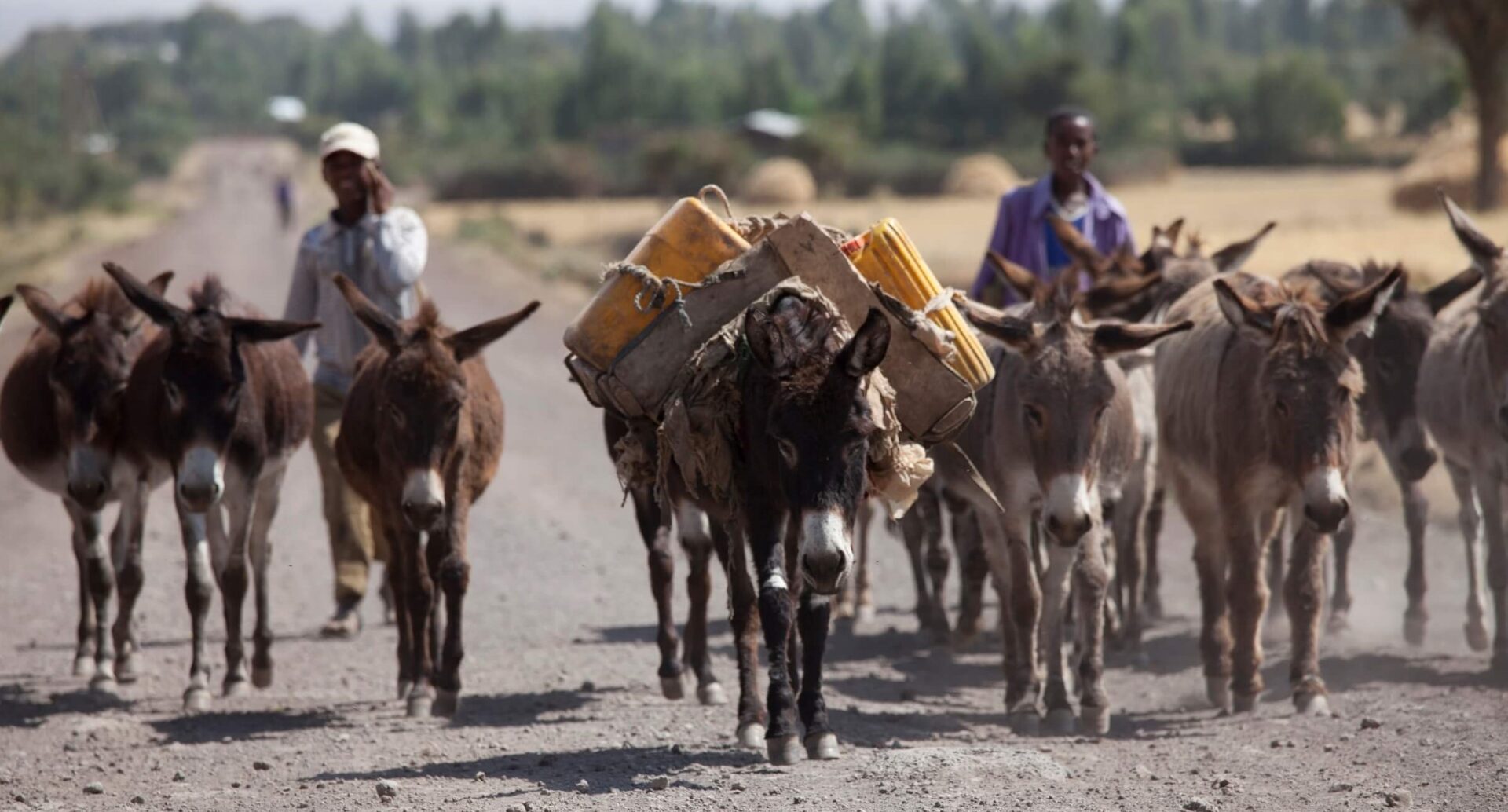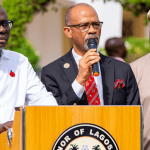Towards the end of 2020, reports made the rounds that Nigeria was about to end its long ban on exporting donkey skins. The report raised concerns that such an action would spark the slaughter of millions of donkeys in Nigeria and across West Africa.
Troubled by the news, The Donkey Sanctuary – the world’s largest equine (horse family protection) charity – contacted a member of the Nigerian House of Representatives, Datti Garba Mohamed, to intervene. His intervention prompted Vincent Isegbe, the Comptroller General of the National Agricultural Quarantine Service (NAQS), to clarify this week during a press briefing that donkey skin trade “remains banned” in Nigeria and that anybody who indulges in it will be prosecuted.
Donkey skins are exported for different uses. But the biggest market for them is China, where they are used for traditional medicine.
During the press briefing, Isegbe warned that Nigeria’s donkeys were “…going into extinction, the population has gone down drastically, and the slaughter of donkeys is bad. The law is against the slaughter, transportation, and storage of [donkeys and] trade in donkey hide.”
Seeking Datti’s intervention was critical because he has been a loud voice against the killing of donkeys in Nigeria and the exportation of their skin. In 2019, he sponsored a bill seeking the preservation of donkeys. Datti had warned that the donkey population in Nigeria was depleting and that their protection was necessary because of their economic value to rural people who use them for transportation and labour.
Reacting to the clarification by NAQS, The Donkey Sanctuary said it is happy about the development. It praised the Nigerian government for its “‘foresight and leadership’ in refusing to allow the slaughter and export of donkey skins.”
It said Nigeria has set an example. And it hopes that: “other West African countries will now follow the lead taken by Nigeria and position adopted by ECOWAS and stand united. The trade has been hit hard by this powerful message from Nigeria – other West African countries must not allow their donkeys to now become targets for traders instead.”
The charity decried that despite efforts by national governments and the Economic Community of West African States (ECOWAS), donkey skin traders have undermined [the] efforts to protect national donkey populations, resulting in the slaughter of millions of donkeys across West Africa since 2016.
“[But] The tide of opinion has very clearly turned against the trade in Africa. The growing message is that donkey skin traders are no longer welcome. Kenya, Tanzania and now Nigeria have all recently sent a clear message to traders: ‘our donkeys are precious to our people, they are worth more alive than dead, and we will protect them from slaughter,'” Ian Cawsey, the charity’s Director of Advocacy and Campaigns said.
“At The Donkey Sanctuary, we understand the importance of donkeys to the communities they are part of, and that is why they deserve better health and welfare and should be protected from the cruel and inhumane donkey skin trade.”
At the end of 2020, concerns emerged that Nigeria might lift its ban on the export of donkey skins, which could lead to mass slaughter of donkeys in Nigeria and West Africa. The Donkey Sanctuary, a leading equine protection charity, intervened by contacting Nigerian lawmaker Datti Garba Mohamed. Mohamed’s efforts led to a clarification from Vincent Isegbe, head of the National Agricultural Quarantine Service, that the ban on donkey skin trade remains in place and violations will be prosecuted.
Donkey skins are primarily exported to China for traditional medicine. Isegbe warned that Nigeria’s donkey population is drastically declining and prohibited the slaughter, transport, and trade of donkeys and their hides. Mohamed, a vocal advocate for donkey preservation, had previously sponsored a bill for their protection due to their economic value to rural communities.
The Donkey Sanctuary expressed satisfaction with Nigeria's stand, urging other West African countries to follow suit to prevent their donkeys from becoming targets for traders. The charity criticized efforts by traders that undermine donkey population protection across West Africa, emphasizing the increasing opposition to the trade. It highlighted that countries like Kenya, Tanzania, and Nigeria have declared donkeys more valuable alive than dead.
The Donkey Sanctuary stressed the importance of protecting donkeys for the communities that rely on them, advocating for better health and welfare for these animals.






